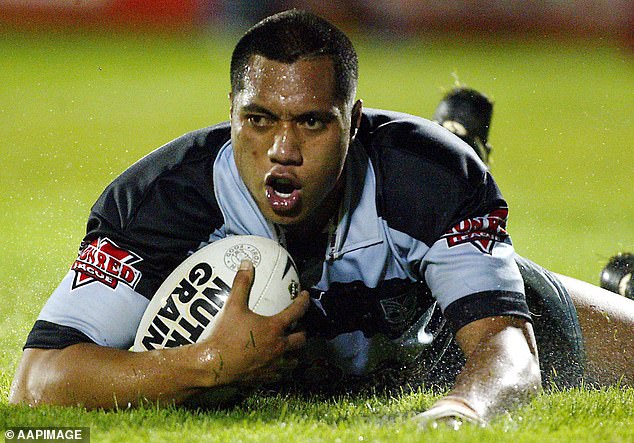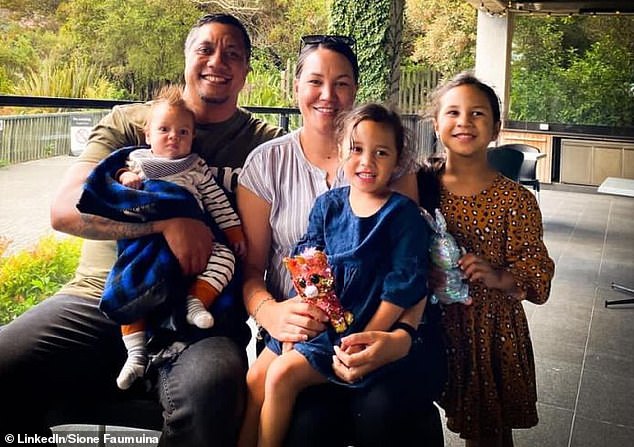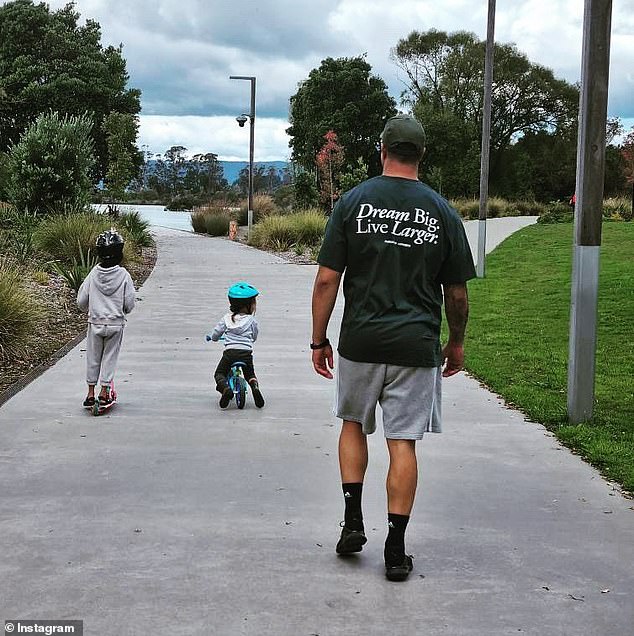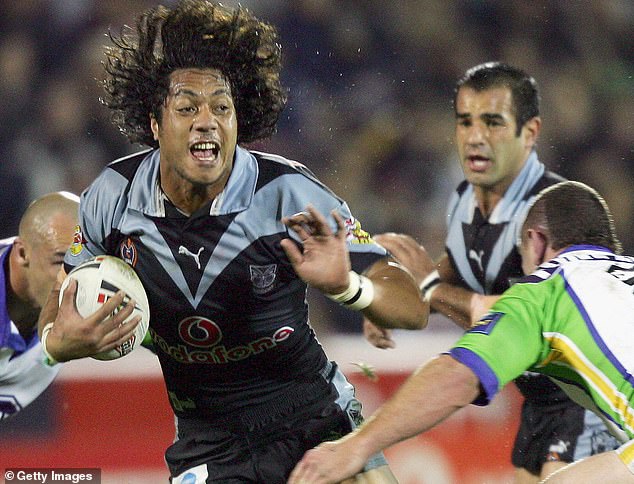Former New Zealand Warriors bad boy Sione Faumuina has opened up about his self-destructive battle with alcoholism, how he blew a million dollars and the time he almost took his own life.
Faumuina, 43, was a hugely talented footballer who played 132 NRL games for the Warriors, Cowboys and Raiders and represented New Zealand, but the troubled star never reached his full potential.
The Kiwi star was a wild and sometimes self-destructive man off the field, and was never able to control his drinking habits, which sometimes involved regular, multi-day binges.
While playing for the Warriors, it was not uncommon for him to go out all night drinking before taking a taxi straight to the club for a training session.
“I was that guy who could go out all night, go to training and still come first in all of our fitness exercises,” Faumuina revealed in the Between Two Beers Podcast.
‘That’s how I was. I smoked. I drank. I partied, but I trained even harder. That’s how I used to validate that.
“And some of the guys would get really mad and say, ‘Man, you’re still drunk, how can you come and beat us up?'”
Although he had extraordinary talent, Faumunia says he found it difficult to dedicate himself to the sport in the way that coaches demand of their players.
Sione Faumuina (pictured carrying the ball in a 2005 match against Canberra) has spoken about his battles with alcoholism while in the NRL.
“There was never a single moment in my entire NRL career where I said to myself I wanted to win an NRL Grand Final; that never crossed my mind,” he said.
“And honestly, if you ask some of the guys on the club, at the Warriors, it probably never crossed their minds.”
Then-Warriors coach Daniel Anderson found it frustrating that Faumunia and some of his teammates were not as professional as they could be.
“We were in the team room… just chilling there,” Faumunia recalled.
“And Daniel Anderson comes in and says, ‘Wow! What about the game last night? St. George!'”
‘And the boys look at each other and say: ‘Yeah, what a game!’
“And he says, ‘They didn’t even play last night!'”
“Ando couldn’t accept that we didn’t watch football. He couldn’t accept that we didn’t live and breathe rugby league.”

While playing for the Warriors, it was not uncommon for the troubled star to arrive at practice drunk after partying all night.

Faumuina (pictured with his family) struggled with the pressure of playing in the NRL
Faumuina, who was making a lot of money at the time, was involved in several alcohol-related incidents that made headlines in Australian and New Zealand newspapers.
The pressure of being a professional football star was too much and he began to crumble, leaving each of the clubs he played for under a cloud of controversy.
At his lowest point, while playing in New Zealand in 2004, he even considered ending it all.
“I didn’t see any way out,” he said.
‘Mentally and physically I was finished.
‘I don’t know if I’ve ever shared this, but I considered ending my life.’
Fortunately, Faumuina struck up a close friendship with a physiotherapist at the club who helped him through his difficult time and encouraged him to start attending Alcoholics Anonymous meetings.
Faumuina managed to put aside his party lifestyle for a while, but he never managed to escape his demons as a player.
He retired at the age of 28 after a decade as a professional footballer with no clear plan following his tumultuous career.
He estimates he made more than $1 million, but had very little to show for it.
A major turning point came in 2014 after a conversation with her lawyer about how to gain access to her first child after her partner moved out.
‘She said, “Sione, you have to make a decision. Either you want to keep partying and drinking or you want to see your daughter. What are you going to do?”
He decided to quit drinking.

The football legend has since become sober and is now focused on helping other athletes.
The football legend is now a business owner and has settled down with his partner Renay, with whom he has children Ella, Aiva and Kees.
He has since written a book about his struggles on and off the field and is dedicated to helping young athletes make the transition to the second phase of their careers.
“I guess it’s like I’m making up for lost time now,” he said.
If you need help, please contact Lifeline on 13 11 14 or Beyond Blue on 1300 224 636

